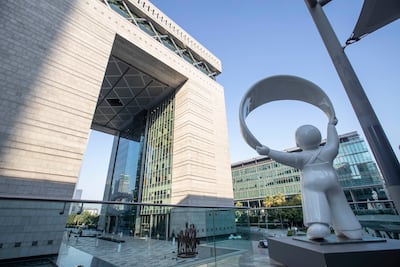In a landmark move, Sheikh Hamdan bin Mohammed, Crown Prince of Dubai, announced the introduction of a public sector expatriates worker savings fund for the emirate earlier this month, which is an addition to the current gratuity system for employees nationwide.
A gratuity is a payment due to a worker when he or she leaves the service of a company and is a standard part of UAE employment landscape, while the new savings vessel is a provident fund and a push towards pensions provision for expatriates.
Although gratuity regulations can vary depending on the sector and zone a worker is employed in, the general rule of thumb is that employees who leave a company after at least a year of employment are entitled to a gratuity equivalent to 14 days of basic pay for each year of service. The gratuity increases to 30 days of basic pay per year after five years of employment with the same company.
There are several online calculators available to work out how much an employee could expect to receive at the end of their employment depending on the emirate or sector they work in, but the point to note here is that in the gratuity’s standard form, amounts accrue based on length of service rather than the capital growing because it is invested or interest bearing, which is why the new fund is so significant.
The general gratuity system is a valued perk for UAE employees, however, although many people end up using it as a buffer fund for when they are between jobs or as a relocation pot for when they leave the country, rather than as an investment opportunity. By introducing a savings fund product, Dubai is pivoting gratuities into wealth generation products.
Separately, in February 2020, Dubai International Financial Centre, a free zone in the emirate, changed its end of service provision into a fund-based system administered by a trust. DIFC employers are required to contribute up to 8.33 per cent of an employee’s monthly wage into the fund. In addition, employees can choose to top up contributions. The scheme has been well supported by DIFC workers since its introduction.

Both these reforms suggest the gratuity system provides fertile ground for possible broader UAE-wide upgrading.
If some small changes were made on a national basis, an upgraded gratuity system could help improve financial literacy, make money work harder and fully inculcate saving into all of our daily habits.
A survey last year found that almost half of expatriate workers have no means of maintaining a decent standard of living in their retirement or plan to continue working beyond retirement age. The same survey found that many people had no long-term savings. A few tweaks to how gratuities are handled could help turn the tide in a more positive direction.
Let’s start with employers. The downside of gratuity payments is that they are often viewed as a ghost liability. Every employee will eventually leave the service of a company whether via resignation, termination or retirement, but the cost of paying out that worker is often funded via cash flow at the point of the worker’s separation from the organisation, rather than as a recurring liability that needs accounting for.
A switch to requiring employers to pay monthly contributions into, say, a state-backed investment fund, would make the system transparent for all and encourage best practice.
There would also be broad benefits for society if gratuity payments nationwide were placed into a government-regulated fund, because a proportion of that money could be used by banks or the state to invest in small businesses or entrepreneurs, for instance – helping the country’s economy further develop its knowledge-base and continue its journey away from oil revenue dependency.
And for employees, they could be encouraged to contribute extra funds each month into the fund and be able to watch their money grow over time, helping residents become more savvy with planning for the future.
For employees who have recently left a job, a decoupling of the gratuity from leaving an organisation would also serve to avoid the significant stress of a potentially frozen bank account when that final salary payment lands. And on the banking side, it would encourage financial institutions to only lend responsibly, rather than using the prospect of an end-of-service payment as a backstop against a loan based on unrealistic multiples of salaries.
There are pitfalls, too, of course. With markets unsettled by the Ukraine crisis occurring so soon after the widespread uncertainty of the pandemic, most investments have fallen sharply this year, but locking money away over the longer term would gently encourage us all to do better with retirement planning. It may even promote a broader understanding of how markets move, which experts too often wrap in incomprehensible jargon that discourages broader engagement with the subject.
It’s worth adding that the vast majority of UAE residents and citizens are very good at day-to-day financial planning. One survey conducted for this organisation found that nine out of ten residents transferred money to their home country either to help family members with expenses or to meet other obligations. But the surveys cited in this column tell us that we need to also do better with our long-term planning. Pivoting gratuities towards true retirement products would help in that regard.
With more people wanting to stay longer in the UAE or actively considering retirement here, it might one day become a necessity to reimagine end of service payments.
And even for those who leave the country at the end of their employment, this country’s 50-year success story may encourage former residents to keep their gratuity invested here for a while longer if their money was in a fund, rather than that cash leaving the country at roughly the same time as the worker flies home for good.
The gratuity system is a good instrument to start with, but with some innovation it could be better still.


